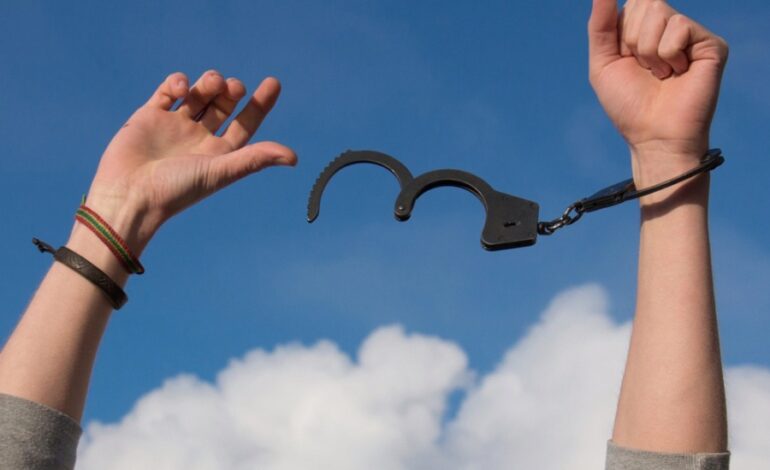Where are important matches or major competitions decided? Sure, in the “head”. Everyone knows that. The term head is somewhat misleading, however, because it suggests that it is about logic or rationality.
The fact is that the vast majority of athletes cannot rationally explain why they had a particularly good or bad day. Of course, you have to work hard and train hard to perform at the top level. If these conditions are met, it depends very much on the feeling, on the emotional state of the athlete on the day of the competition. That’s why, when asked about exceptionally good performances, you usually get the answer “I don’t know exactly, today I just had a great feeling, it went by itself”. If there are downward spikes, it’s usually “I don’t know what happened, I was blocked and couldn’t shake it off at any time”.
The sports world is constantly on the lookout for improvements. New training methods, even more refined tactics, greater training volumes, better nutrition. Sometimes, unfortunately, people even resort to illicit drugs and substances to improve their performance.
If you look at the athletes’ training plans, you will find hundreds of hours of all of the above: performance diagnostics, athletics, technique, tactics, regeneration, nutrition. Everyone knows that the athlete’s head or emotional state makes the difference. Why aren’t the athletes really working on it? When, where and, above all, how is mental strength trained? Many people have not yet found a satisfactory answer to this question.
In individual sport, a visit to a sports psychologist or mental trainer is no longer a rarity. Team athletes, on the other hand, still usually react with aversion to mental training. “I don’t have a problem and I’m not ill!” is a statement you hear very often. Many individual athletes also turn away from classic mental training over time because they are not satisfied with the results they achieve.
Where does mental strength come from?
Mental strength is a term that has been on everyone’s lips for a long time. For me, mental strength means the ability to reach your full potential at important competitions, no matter where and under what conditions. So if you are mentally strong, you will be able to put yourself in the optimum performance state and deliver the required performance. But where does this ability come from and how can it be trained?
To answer this question, let’s take a look at the structure and functioning of the human psyche. With our consciousness we can think logically, be rational and analytical. We can also use our willpower.
However, the decisive factors and parameters for mental strength are hidden in our subconscious: The emotions and feelings (fear, love, (self) trust, anger, hate etc.), the habits, the long-term memory (the sum of all experiences made, nothing is ever forgotten!) as well as self-protection.
The crux of this realization is that we cannot influence our subconscious from our conscious state. Or have they ever managed to talk themselves into self-confidence or fear? Have you ever fallen in love on purpose or consciously developed sympathy for someone? No. No matter how strong-willed they may be, none of these things can be brought about consciously.
The subconscious is many times stronger and more powerful than the conscious mind. When we are under a lot of pressure, the subconscious takes over and we lose conscious control.
Mental strength comes from the subconscious, just like mental weakness.
And that is precisely why hypnosis is also needed in sport. Because effective and lasting changes can only be achieved through the subconscious. Hypnosis is the most effective and efficient method for me to bring about these changes.
Learning to consciously trigger emotional states
With HypnoSport® we have developed various techniques to optimally prepare and train the “head” (the subconscious). Characteristics such as self-confidence, focus, ability to concentrate, dealing with negative experiences, aggressiveness, coolness, ability to suffer, team spirit, fighting spirit, will to win, mental toughness and much more can be efficiently strengthened and improved through sports hypnosis. And, crucially, with a little practice, the desired “feelings” can be consciously recalled in competitive situations. The perfect feeling at the touch of a button!
This gives the athletes a huge competitive advantage. You are no longer at the mercy of your emotions, but can consciously control them. Especially when everything is at stake, this ability is literally game-changing.
Just as with coordination skills, genetics, tactics, athletics or technique, there are also athletes in the mental area who have more or less talent and better or worse prerequisites.
Everyone can improve: those with poor prerequisites as well as the mentally gifted.
If you consider how many hours of training are required to improve by a few percentage points at the highest level, it quickly becomes clear that hypnosis in sport is a very worthwhile investment. After all, very few sessions can often achieve quantum leaps in mental strength and therefore significantly better results.
Injuries
There are often athletes who injure themselves over and over again. Only one part of the body is rarely affected. As soon as the cruciate ligament rupture has healed, a disc hernia sets in, then it’s the hip’s turn, and finally a concussion. It is possible that the athlete’s body is simply not ready or made for the usual stresses and strains of top-class sport. Often, however, the cause of the injury lies hidden in our subconscious.
One of the main tasks of the subconscious is to protect us from danger.
Self-protection is incredibly strong and influential. We all know stories of people who were able to unleash powers and energies at the risk of their lives that they had not even suspected. In sport, this is referred to as “autonomously protected power reserves”. This force cannot be activated consciously or deliberately. Only when self-protection comes into play, i.e. under fear of death or hypnosis, is this potential released.
Unfortunately, it often happens that self-protection protects us from dangers that are not real. Self-protection cannot distinguish between real and imagined dangers. However, this does little to change the intensity of the forces released. Self-protection thus becomes an obstacle for us.
Well-known examples are anxiety disorders, panic attacks or phobias. Self-protection can be “misdirected” in the long term by an emotionally intense experience that remains unprocessed. If, after a serious injury, the subconscious comes to the conclusion that the sport in which we suffered the injury is too dangerous for us, we are prevented from practicing this sport again by fear or panic, for example. Thanks to direct and cause-oriented hypnosis, we can intervene here simply and in a corrective manner.
It’s also possible that our subconscious just wants to protect us from getting into a pressure situation or a comparison that we don’t feel up to. The self-protection in our subconscious always finds a way to reach its goal.
In my work with top athletes, I’ve seen athletes drop out due to injury time and time again. The subconscious has ensured that the athlete never got into the dreaded competition situation due to injuries. This “program” is often caused by a strong, unprocessed emotion that the subconscious stored at some point in childhood and linked to sport.
Even if the body regenerates and is medically healthy again and the causes have been removed from the subconscious, success is not always immediate. Intense or prolonged pain leads to changes in the brain. The nerve cell network is restructured and changes occur in the synapses (“connections” in the brain). Every time we experience pain, the wiring in the brain becomes thicker and faster. It often happens that the body appropriates the pain and makes it a habit. The pain memory is developed.
Pain is nothing more than an electrical impulse that is transmitted via the nerve fibers to the central nervous system in the area of the spinal cord and the brain. The higher the frequency of the electrical impulses, the stronger the pain. Under hypnosis, the synapses, i.e. the connections in the brain, can be separated from each other and the memory of pain can be erased.
Blockages and the winner gene
Sport is all about emotions. You are often confronted with very different emotions that follow each other in quick succession. Feelings of happiness, hunger for victory, euphoria and pride alternate with disappointment, sadness, anger, fear or dejection. People learn most efficiently through their emotions. Everything that is associated with strong emotions burns itself into our subconscious. If the events are repeated, a program is created that is executed by our subconscious. This creates athletes with the winner gene, i.e. those who always play best when it is important. This is exactly how the training world champions are created.
The programs and character traits are already formed in childhood. A negative experience in sport can often activate a “program” that was developed early on. An athlete who, as a child, was constantly confronted with the fact that they never did anything well enough or were not good enough is more likely to be affected than someone who has had many successes and positive feedback. You often encounter fears of failure that are triggered by a bad experience during your sporting career, suddenly appear and never disappear. To get rid of this fear of failure, which usually turns into a complete blockage after a while, it is advisable to eliminate the problem at its source. In this case, working with an athlete is hardly any different from working with normal clients.
Success and independence
Athletes are determined and proud people. They are performance and results-oriented. That comes with the job. The expectations of spectators, coaches and sponsors are consistently high. The pressure to perform is omnipresent. Athletes want and need success. What they also need is independence. We can offer both. In recent years, we have proven several times that we can contribute a great deal to an athlete’s success with sports hypnosis.
The athlete is independent of his sports hypnosis therapist or coach at all times.
We give the athlete the tools, but he has to use them himself. Hypnosis alone does not score goals and it does not win competitions. However, when used correctly, it is the most efficient tool to help the athlete achieve optimum performance. The athlete remains autonomous and is responsible for his or her own actions at all times.
I look forward to the future with anticipation and optimism. Sports hypnosis is effective and efficient. It will therefore attract even more attention in the future. Making individual athletes and entire teams more successful is a wonderful task. It’s fun and lets you share in the emotions of the athletes!

Adrian Brüngger, Switzerland
HypnoSport® Instructor | Former. Coach of the Pfadi Winterthur 1st team, handball in the top Swiss National League A, Swiss Champion and Coach of the Year 2021
Internet: www.hypnosport.net




